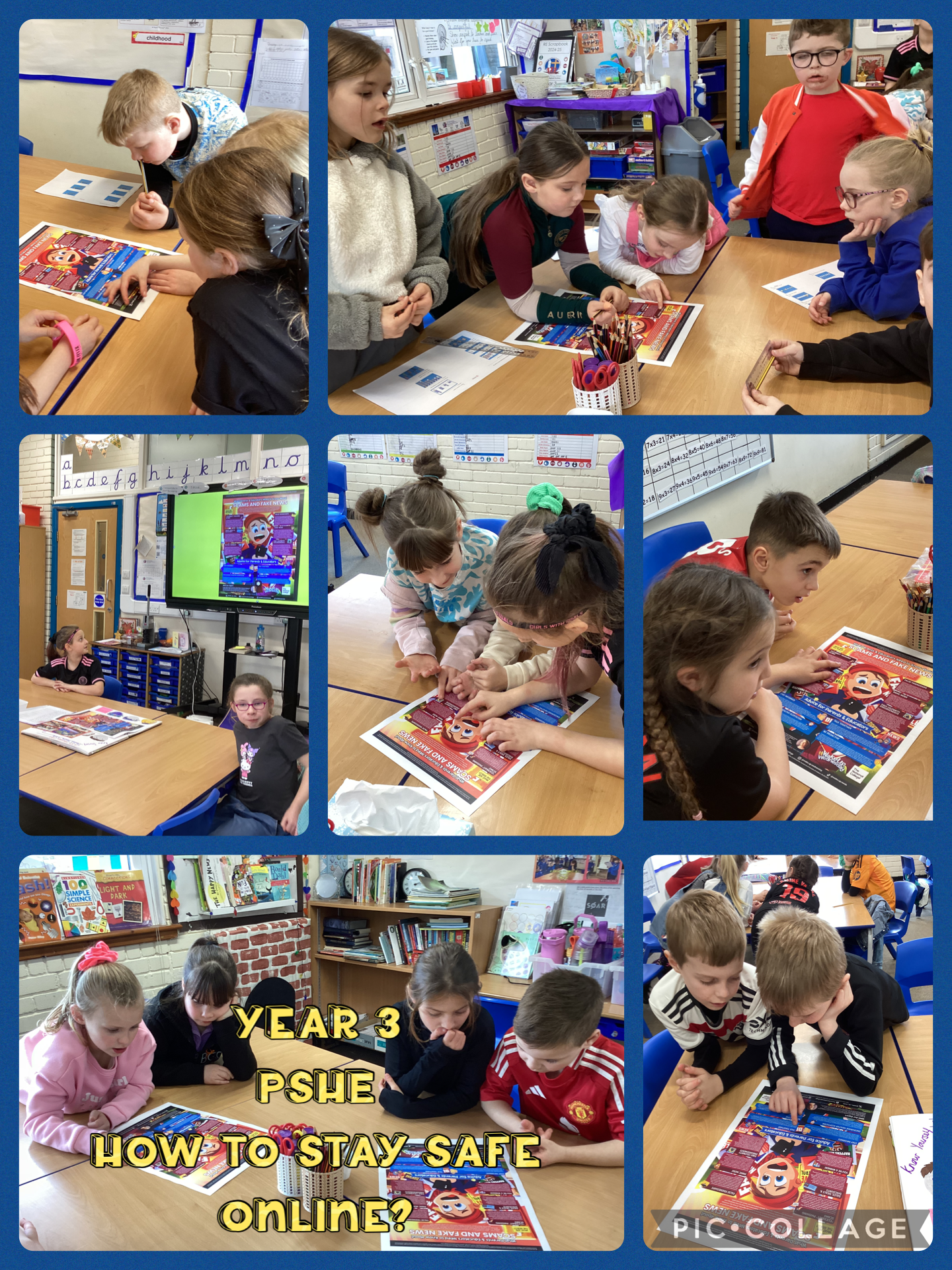
During our PSHE lesson, Year 3 discussed the importance of staying safe on the internet and how to recognise scams and fake content. We talked about common scams, such as fake competition messages claiming, “You’ve won a prize!” that trick people into clicking unsafe links, as well as fake emails pretending to be from banks or companies asking for personal details. We also looked at edited images that make things appear real when they are not, such as fake celebrity endorsements or photoshopped pictures used to spread false information. Parents should have open conversations with their children about these dangers, teaching them to check sources, spot warning signs like poor spelling and urgent messages, and always avoid clicking on unknown links. Encouraging critical thinking by asking, “Does this seem too good to be true?” helps children become more aware. Setting up safe browsing habits with parental controls and child-friendly search engines is essential, along with reminding children to always ask before downloading apps or making purchases. Keeping communication open ensures they feel comfortable reporting anything suspicious without fear of punishment. Finally, leading by example verifying information before sharing and being cautious with online messages, emails, and deals helps reinforce good digital habits.


